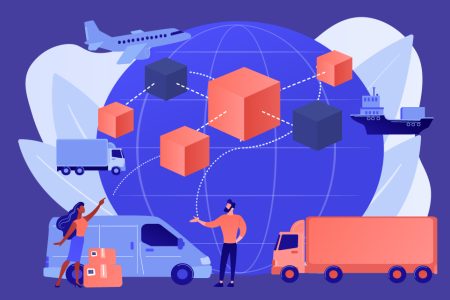Welcome to the future of sustainable B2B logistics! In a world where eco-consciousness is no longer just a trend but a necessity, businesses are increasingly turning to automation to revolutionize their supply chain operations. Join us as we explore how implementing sustainable practices through automation is not only beneficial for the planet but also for your bottom line. Let’s dive into the exciting realm where technology meets environmental responsibility in the world of logistics!
The Role of Automation in Promoting Sustainability
Automation plays a crucial role in promoting sustainability within the realm of B2B logistics. By leveraging technology to streamline processes and optimize resource utilization, businesses can significantly reduce their environmental footprint. Automated systems help minimize wastage, lower energy consumption, and enhance overall efficiency.
Through automation, companies can achieve greater accuracy in inventory management, leading to reduced overstocking or stockouts. This not only cuts down on unnecessary waste but also contributes to lower carbon emissions associated with transportation and storage.
Automated routing and scheduling solutions enable optimized delivery routes that minimize fuel consumption and decrease greenhouse gas emissions. Additionally, automated monitoring tools provide real-time insights into energy usage, allowing for better decision-making when it comes to resource allocation and conservation efforts.
Incorporating automation into B2B logistics not only drives operational efficiencies but also paves the way for more sustainable practices that benefit both businesses and the environment alike.
Examples of Sustainable Logistics Automation Technologies
In the ever-evolving world of B2B logistics, sustainable practices are becoming increasingly crucial. Automation technologies play a vital role in driving efficiency and reducing environmental impact. One example is route optimization software, which minimizes fuel consumption by finding the most efficient delivery routes.
Another innovative technology is warehouse automation systems that optimize storage space and reduce energy usage through smart inventory management. Robotics and drones are revolutionizing order picking processes, enhancing speed and accuracy while decreasing human labor requirements.
IoT sensors enable real-time tracking of shipments, ensuring transparency throughout the supply chain and minimizing delays or losses. Blockchain technology provides secure data sharing, increasing trust among stakeholders.
These examples illustrate how sustainable logistics automation technologies are reshaping the industry towards a greener future.
Benefits and Challenges of Implementing Sustainable Practices through Automation
Implementing sustainable practices through automation in B2B logistics comes with a range of benefits. One significant advantage is the reduction of carbon emissions and other pollutants, contributing to a greener environment. Automation also enhances efficiency by streamlining processes, reducing waste, and optimizing resource utilization.
Automating tasks like inventory management and route planning can lead to cost savings for businesses in the long run. It allows for real-time monitoring and data analysis, enabling companies to make informed decisions that support sustainability goals.
Integrating sustainable practices through automation may present some challenges. Initial setup costs can be high, requiring investments in technology and employee training. There might also be resistance from staff who fear job displacement or lack familiarity with new systems.
Despite these obstacles, the benefits of adopting sustainable automation technologies far outweigh the challenges in creating a more eco-friendly and efficient supply chain ecosystem.
Conclusion
In a rapidly evolving B2B logistics landscape, sustainability is no longer just an option but a necessity. Automation plays a crucial role in promoting sustainable practices by increasing efficiency, reducing waste, and minimizing environmental impact.
By implementing sustainable logistics automation technologies such as route optimization software, warehouse robotics, and green packaging solutions, businesses can significantly reduce their carbon footprint while improving operational effectiveness.
While there are challenges to overcome, the benefits of embracing sustainable practices through automation far outweigh the obstacles. From cost savings to enhanced brand reputation and compliance with regulations, the advantages are clear.
As we move towards a more environmentally conscious future, integrating sustainability into B2B logistics through automation is not just beneficial for businesses but essential for the well-being of our planet. Embracing this shift will not only drive innovation and competitiveness but also pave the way for a greener and more sustainable supply chain ecosystem.



